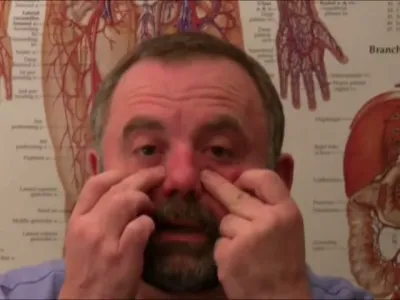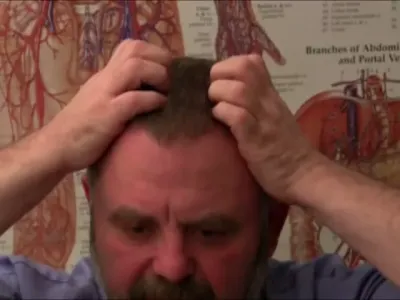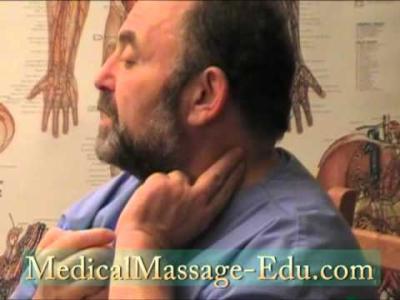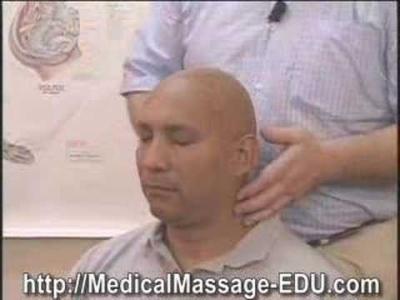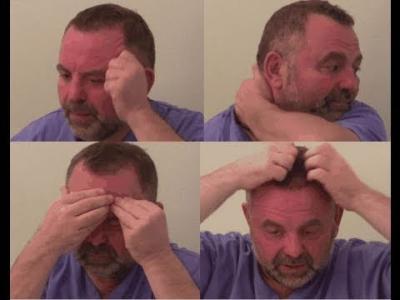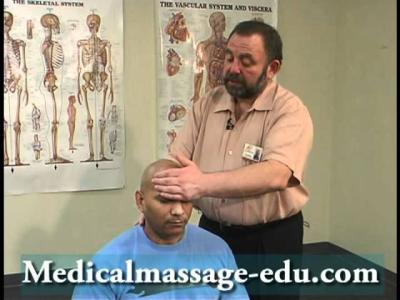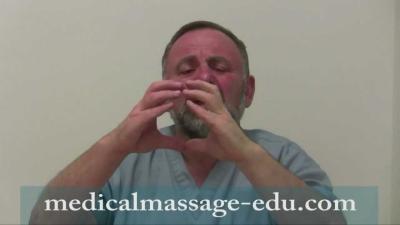Self-TMJ dysfunction treatment page
Welcome to self-TMJ dysfunction treatment page
We hope that the presented materials contribute to your well-being. Even though proposed techniques are not harmful, we highly recommend consulting your doctor before application.
Please scroll down to view the videos lessons
Temporomandibular joint (TMJ), is the hardest working joint in all our body. During 24 hours while talking, chewing, clenching, etc, it performs more than 2,000 movements. It formed by the temporal and mandibular bones. Attached to the mandibular condyle is a fibrocartilage meniscus or articular disk, which allows the mandible to move smoothly. The masticatory muscles (temporalis, masseter, lateral pterygoid, and medial pterygoid) are responsible for movement and stabilization of the TMJ.
The development of temporomandibular joint dysfunctions has reached pandemic proportions. TMDs trigger high-intensity headaches, eyes irritability, dizziness, difficulty chewing, painful joint clicking and popping, ear ringing /Tinnitus, results in sleep disorders, anxieties and more.
We believe that the main cause for TMDs is tremendous exposure to stress. Due to stress, people often develop bruxism. Bruxism is a pathological clenching and grinding of teeth that usually occurs during sleep. Bruxism is caused by the hyperactive contraction of the masticatory muscles. Imagine any other muscles in our support and movement system be kept not all time,but periodically under tight contraction for 7 to 8 hours.
Of course, pathological hypertonus in these muscles is formed, followed by restriction in a range of motion, trigger point development, and other symptoms. With time, hypertonic condition in the masticatory muscles leads to the development of osteoarthritis in the TMJ, including negative effects on the articular meniscus. In such a case, the above-mentioned TMJ pathology starts producing severe headaches and painful “clicks.”
Bruxism is the only one stress related side effects contributing to the TMD.
As you know we carry stress in the region of neck and upper back, and it expressed by an elevated resting muscles tone/muscles tension, which in many cases slightly changes our posture, flexing the neck region, folding shoulder forward. In such a case, additional to usual extremely hard work of masticatory muscles, bad posture intensifies strain on TMJ muscles due to increased gravity.
Consequently, if only painful masticatory muscles are addressed, it would be difficult to sustain results in treatment and management of temporomandibular joint dysfunctions. Therefore this lesson proposes stress management self-massage protocol that teaches how to keep correct posture when sitting on front of a computer, offers special neck exercises to sustain results and more.
In some cases people develop temporomandibular joint dysfunctions at post dental work. Many attribute this phenomenon mouth being kept open for a long time. This is possible.
Due to stress, most of us have preconditioned elevated tension within chewing muscles, which makes them sensitive. When mouth is kept wide open, spindle receptors are activated and muscles demonstrate protective muscular spasm.
Having been subjected to this condition for long time, a person strains/injures these muscles. Additionally to describe condition, doctors injecting anesthesia, that instead of relaxing muscles, produce more trauma, leading to development of trigger points; especially within naturally very short medial pterygoid muscle that can be reached for massage stimulation through cavity of mouth. Mentioned above tensions within muscles can compress trigeminal nerve, resulting neuralgia , high-intensity irradiating pains. Massage of medial pterygoid muscle, including trigger point therapy, reducing trigeminal nerve compression. Please keep in mind that if one develops TMD not due to dental work, it would be beneficial to stimulate medial pterygoid muscle as well.
